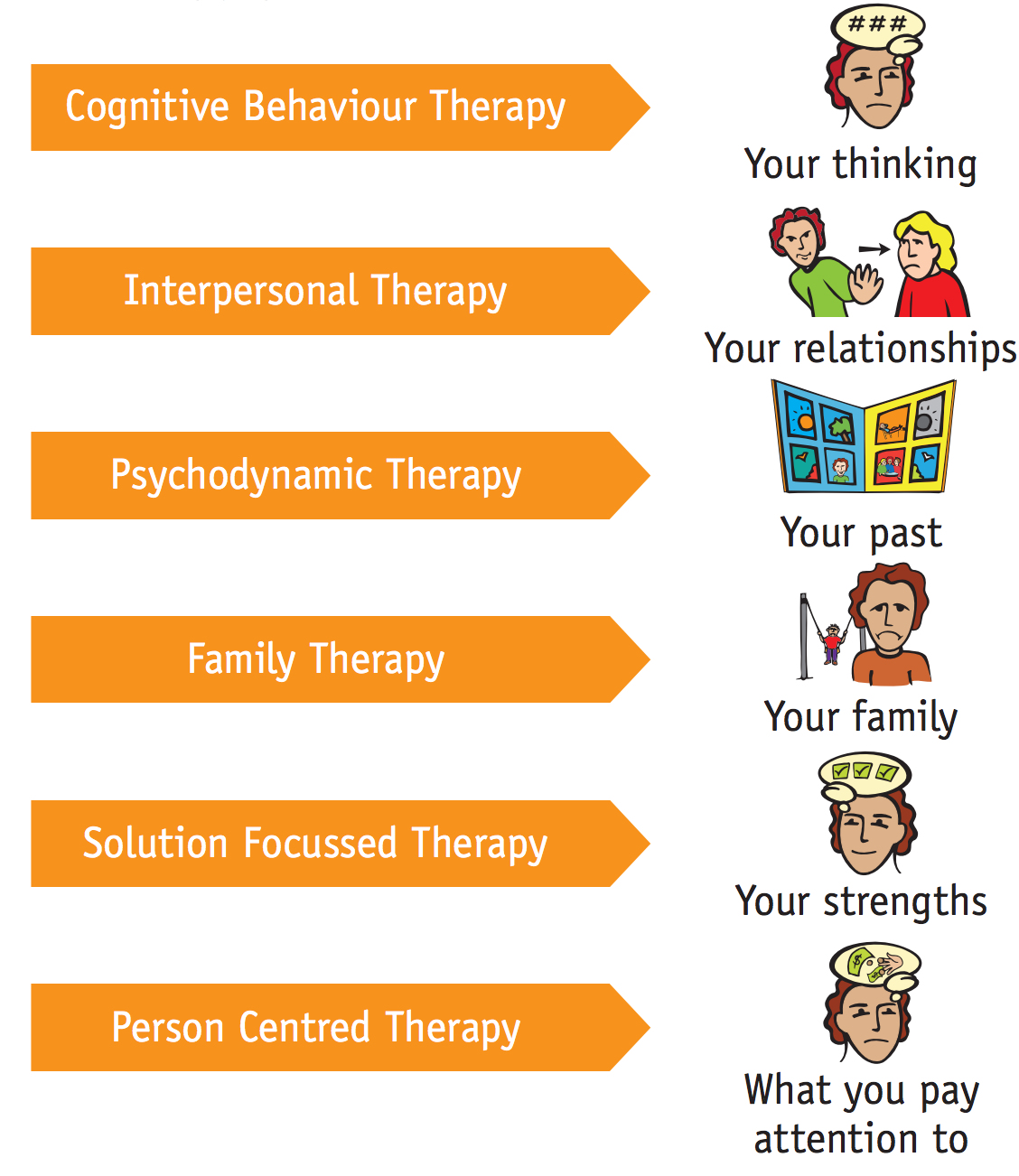Top Indicators You Might Need relationship therapy
Wiki Article
Discovering the Advantages of Virtual Therapy in Modern Mental Healthcare
The rise of virtual therapy notes a significant shift in psychological wellness care. It supplies boosted access, permitting people from diverse backgrounds to look for aid without geographical constraints. Versatility in organizing fits differing way of livings, while the comfort of home can promote openness. However, the ramifications of these adjustments extend beyond simple comfort. The evolving landscape of therapy increases crucial concerns regarding its lasting results on patient interaction and therapy end results.Boosted Ease of access for All
Standard therapy frequently provides barriers such as geographical location and scheduling conflicts, virtual therapy significantly improves accessibility for individuals looking for psychological health and wellness assistance. By removing the requirement for physical travel, virtual therapy allows clients from remote locations or those with mobility obstacles to get in touch with certified experts. This mode of therapy can reach underserved populations who may do not have neighborhood psychological wellness resources, consequently attending to variations in access to care. Furthermore, virtual systems can provide to varied requirements, providing solutions in numerous languages and suiting different cultural histories. Clients can involve with a wider variety of specialists, supplying them with choices that align with their certain requirements and preferences. This boosted availability fosters an extra inclusive setting, enabling people to seek aid without the stigma typically associated with in-person brows through. Generally, virtual therapy represents a considerable development in making mental healthcare a lot more accessible to all.Adaptability in Organizing Sessions

As virtual therapy proceeds to gain traction, its inherent adaptability in organizing sessions proves to be a significant advantage for lots of individuals. Unlike typical in-person therapy, virtual therapy enables clients to choose session times that ideal fit their personal and specialist dedications. This adaptability accommodates those with demanding job routines, family members commitments, or various other dedications that can make attending physical appointments challenging.
Customers can conveniently reschedule or readjust their sessions as required, minimizing the stress and anxiety associated with rigid consultation systems. The schedule of numerous time slots throughout the week, consisting of evenings and weekend breaks, additionally improves availability. This versatility not only encourages uniformity in presence however likewise fosters a better dedication to the restorative process. Ultimately, the adaptability in organizing sessions represents a transformative shift in psychological healthcare, empowering people to prioritize their well-being without sacrificing various other elements of their lives.
Comfort of a Familiar Environment
The comfort of a familiar environment substantially improves the effectiveness of virtual therapy for many clients. Engaging in therapy from the safety and security of their own homes allows people to feel more comfortable, reducing anxiousness that may come with typical in-person sessions. This experience can facilitate open communication, making it possible for customers to express their thoughts and sensations extra easily.The presence of individual items and the capacity to control their environments can add to a sense of safety and relaxation. Customers typically report that remaining in a comfortable room allows them to concentrate much more on the healing procedure as opposed to the establishing itself.
In addition, the casual nature of virtual sessions can assist liquify barriers that might exist in a traditional office setting, cultivating a deeper connection with specialists. Overall, the convenience of acquainted surroundings plays a vital role in improving the restorative experience and efficiency for many people seeking mental wellness support.
Bigger Range of Therapeutic Options
A wider variety of therapeutic alternatives appears via virtual therapy, permitting customers to access numerous techniques that may not be viable in standard setups. This versatility makes it possible for individuals to discover varied techniques such as cognitive-behavioral therapy, mindfulness techniques, art therapy, and also specialized interventions like trauma-informed care or dialectical behavior modification.Moreover, clients can choose from a wider range of therapists, consisting of those that specialize in particular niche areas or specific populations, improving the chance of discovering an appropriate suit. Virtual systems typically provide access to team therapy sessions, support neighborhoods, and workshops that may be geographically inaccessible otherwise.
This variety encourages customers to engage in their healing process according to their unique choices and requirements, possibly enhancing inspiration and dedication to treatment. Because of this, the landscape of mental healthcare becomes extra inclusive and adaptable, satisfying a larger selection of individual experiences and challenges.
Lowered Preconception Bordering Therapy
Accessing therapy through virtual platforms adds to a substantial reduction in the preconception typically related to mental healthcare. By offering a very discreet and private setting, virtual therapy allows people to seek aid without the worry of being evaluated or identified. This anonymity interest those who might or else think twice to go after in-person therapy as a result of social understandings surrounding mental wellness.In addition, as the frequency of virtual therapy increases, it stabilizes the conversation around psychological wellness, making it a more appropriate component of everyday life. People often really feel more comfortable reviewing their experiences online, advertising visibility and decreasing feelings of seclusion. The access of these services also urges a wider demographic to involve with mental health and wellness sources, cultivating a society of support instead of shame. Ultimately, the surge of virtual therapy plays an essential function in improving perspectives in the direction of looking for aid, contributing to a more accepting culture concerning mental health difficulties.
Cost-Effectiveness and Price

Decreased Session Prices
Many people seeking psychological health and wellness assistance locate that virtual therapy greatly reduces session prices compared to standard in-person alternatives. The removal of traveling expenses and pause job usually contributes to general cost savings. Furthermore, many virtual specialists use competitive prices due to lower overhead costs related to keeping a physical workplace. This change in expense allows customers to access high quality mental health solutions without the economic strain that may feature traditional therapy. For many, this affordability enables more regular sessions, which can boost treatment end results. Therefore, virtual therapy not just equalizes access to mental healthcare however additionally provides a sustainable financial design that straightens with customers' budget plans, making psychological health and wellness assistance more possible for a wider target market.Expanded Accessibility Options
While typical therapy commonly provides logistical obstacles, virtual therapy substantially increases gain access to alternatives for people seeking mental wellness care. By eliminating my link the demand for travel straight from the source and permitting versatile organizing, virtual therapy fits diverse way of lives and commitments. This accessibility is specifically advantageous for those in remote areas or with flexibility challenges. Additionally, the cost-effectiveness of virtual therapy lowers monetary stress, making mental health solutions much more obtainable. Many platforms use tiered rates or moving range costs, promoting affordability. Insurance firms significantly recognize virtual therapy, further improving its financial access. On the whole, virtual therapy not just widens the scope of that can receive care yet likewise addresses financial obstacles, making mental health and wellness assistance a lot more comprehensive and achievable for all.Improved Continuity of Treatment
Improved connection of care becomes a substantial advantage of virtual therapy in contemporary mental healthcare. This method allows patients to preserve consistent communication with their specialists, despite geographical barriers or organizing problems. low cost therapy. The adaptability of virtual sessions fosters normal check-ins, which are vital for keeping track of development and adjusting treatment intends as requiredIn addition, electronic health records and telehealth platforms assist in seamless info sharing among care suppliers. This interconnectedness guarantees that all professionals involved in a client's care are updated on treatment advancements, causing even more coordinated and efficient interventions.
Patients usually experience lowered stress and anxiety and raised involvement due to the comfort of accessing therapy from acquainted atmospheres. Such ease of access boosts adherence to therapy regimens, eventually improving outcomes - relationship therapy. To sum up, virtual therapy not just bridges spaces in mental health solutions but additionally strengthens the continuity of treatment, a vital component of successful therapeutic connections
Often Asked Questions
Exactly How Does Virtual Therapy Guarantee Discretion and Personal Privacy for Clients?
The current inquiry addresses the actions virtual therapy uses to safeguard client discretion. Utilizing encrypted platforms, safe and secure logins, and compliance with regulations like HIPAA, virtual therapy warranties that delicate info continues to be exclusive and unattainable to unapproved individuals.Can I Change Therapists Easily in Virtual Therapy?
Switching over therapists in virtual therapy is normally simple. Clients can interact their desire for a modification through the platform, permitting flexibility in discovering a far better suit without the logistical challenges of in-person appointments.What Technology Do I Required for Virtual Therapy Procedure?
To take part in virtual therapy sessions, a private generally requires a trusted net link, a computer or smartphone with a camera and microphone, and access to a safe video conferencing system specified by their therapist.
Are Virtual Therapy Procedure as Effective as In-Person Procedure?
Current researches show that virtual therapy sessions can be equally effective as in-person sessions, depending upon the individual's preferences and circumstances. Aspects useful source such as convenience and access might boost the general restorative experience for some clients.What Should I Do if I Experience Technical Issues Throughout a Session?
If technological concerns develop during a session, one need to steadly interact the trouble to the specialist, effort to reconnect, or switch to a backup approach. Patience and flexibility are essential in taking care of these disruptions.Report this wiki page